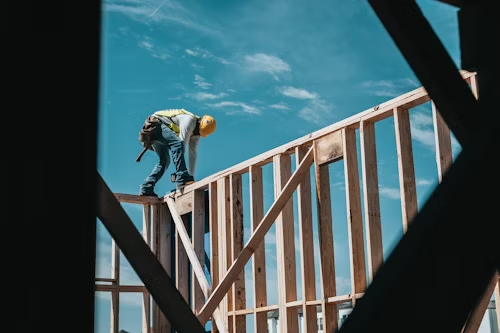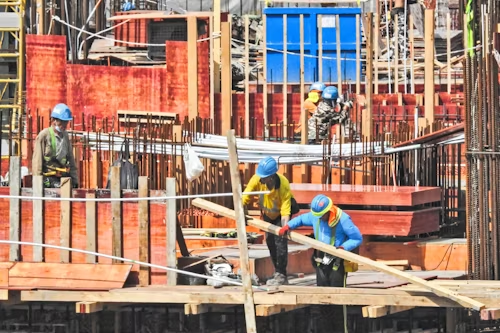
A breakthrough deal at the California State Capitol could reshape housing development across the state, particularly in neighborhoods long zoned for single-family homes.
A controversial housing bill, Senate Bill 79, which would clear the way for taller apartment buildings near major public transit stops, is now advancing after a surprising political shift. The State Building and Construction Trades Council, one of California’s most powerful labor unions, has agreed to drop its opposition in exchange for amendments requiring some projects to hire union workers.

The legislation, authored by Sen. Scott Wiener (D–San Francisco), would allow developers to build as high as six stories on residential and commercial lots within a half-mile of busy train, subway, and bus stations. If passed, SB 79 would mark one of the largest state-driven housing density initiatives in recent memory, directly challenging local zoning restrictions that limit development to single-family homes.
“This is exactly where we should be building more housing, right by our highest quality transit,” Wiener said.
The Trades Council, historically a formidable opponent of bills loosening residential development rules without labor concessions, had resisted SB 79 since it was introduced in March. Their withdrawal from the opposition is seen as a major turning point.
“My hope is that this can be the beginning of shifting the dynamic where we’re all locking arms,” Wiener added. “We all want more housing. We all want more construction workers to be part of the middle class and not in poverty.”
CO Summit Santa Clara filling fast – secure your place among California's construction innovators on Sep 27, 2025. | Know more
Chris Hannan, president of the Trades Council, explained the compromise in a statement:
“The labor standards in the amendments negotiated by the State Building Trades will create good jobs, provide training for the next generation of California’s skilled construction workforce, and ensure that this desperately needed housing is built with quality and that workers are treated with dignity.”
Under the agreement, projects taller than 85 feet must employ “skilled and trained” workers if enough qualified bids are submitted, effectively setting a union preference. Similarly, housing projects built on transit-agency-owned land will either need to meet these standards or contract directly with labor groups.
The bill has become a flashpoint in California’s housing debate. Backers include YIMBY (Yes In My Backyard) advocates, business organizations like the Bay Area Council, and transit supporters, who argue the measure will help tackle the state’s housing shortage while reducing car dependence.
“You hear from legislators all the time trying to be on the same side as the housing folks and the same side of labor — they don’t like when those sides are split,” said Louis Mirante, a Bay Area Council lobbyist. “The trades removing their opposition is always helpful when you’re trying to pass a housing bill. That’s pretty cut and dry.”
But neighborhood preservation groups, local governments including Los Angeles, and critics of market-rate development remain staunchly opposed, claiming the bill undermines local authority and does not go far enough on affordable housing requirements.

Wiener, along with California YIMBY founder Brian Hanlon, worked directly with Hannan to strike the compromise. Hanlon described the deal as a potential long-term political realignment:
“This bill here represents not just a deal on the specific language of SB 79, but it’s also a commitment from me and Chris to work together in the coming years to pass legislation to create more homebuilding opportunities in California.”
Unite Here, the union representing hospitality workers, has also thrown its support behind the bill, though future amendments will specifically exclude hotels from qualifying under its provisions.
SB 79 still faces hurdles. It must clear a full Assembly vote and return to the Senate for final approval before the Sept. 12 legislative deadline. If signed by Gov. Gavin Newsom, it would mark a personal victory for Wiener, who has seen similar efforts fail twice in the past.
“The bill is not guaranteed to pass, but we have more momentum today than we did yesterday,” Wiener said.
If successful, the law could dramatically alter the housing landscape in California, signaling a new era of cooperation between labor and housing advocates to tackle the state’s deepening housing crisis.
Originally reported by Ben Christopher in Cal Matters.